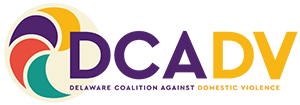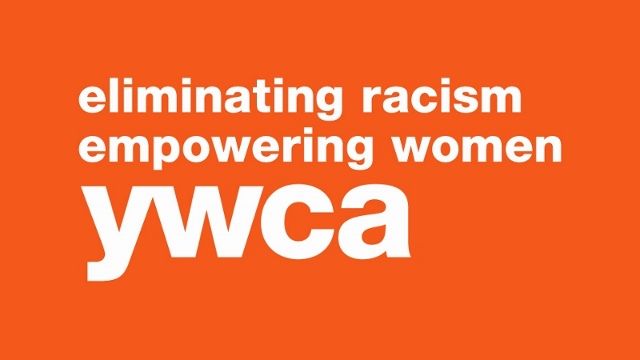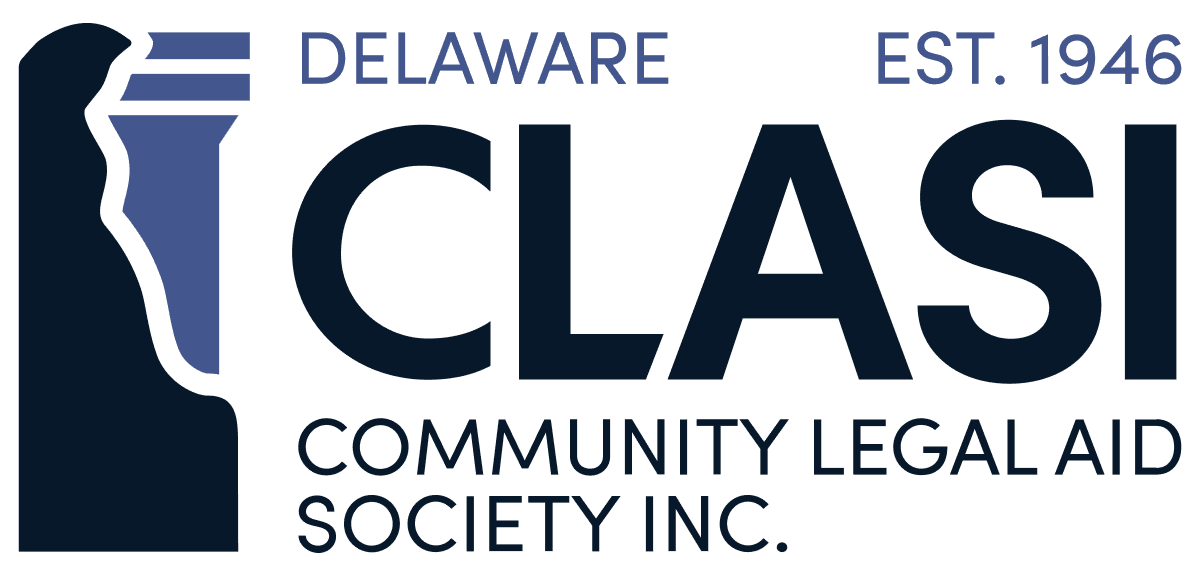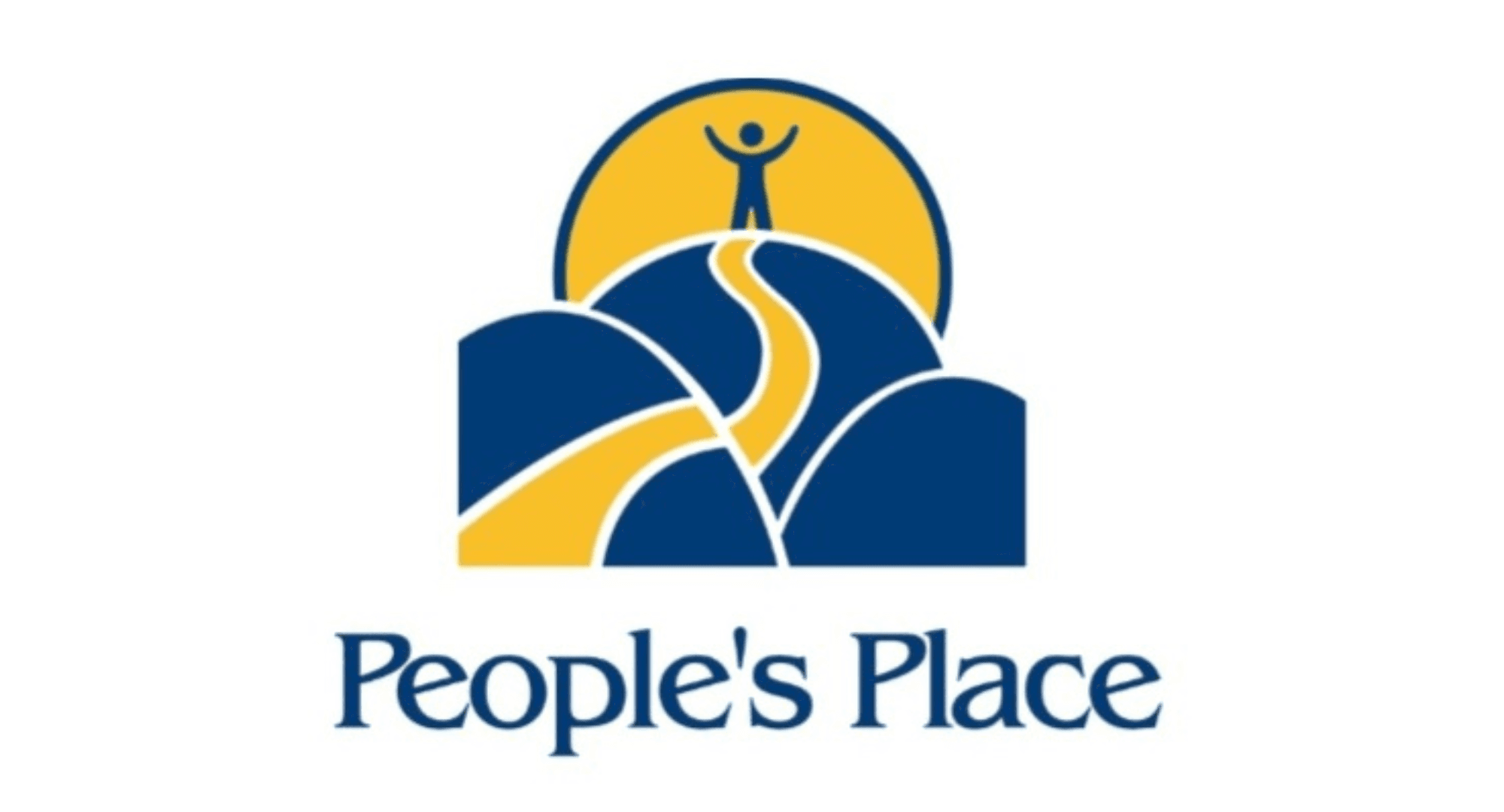Remembrance, Progress, and Moving Forward
Shelby Statham, Prevention Policy Specialist, DCADV
Happy Pride Month to everyone in my lesbian, gay, bisexual, transgender, and queer family! We would be remiss not to name the vital work of our LGBTQ+ elders who began this work, many of which represent the most marginalized among us. We remember Stormé DeLarverie and countless others at the Stonewall rebellion in 1969, Marsha P. Johnson and Sylvia Rivera who provided the first shelter for LGBTQ+ youth in the 1970s, and activists like Larry Kramer in ACT UP fighting for life-saving support during the 1980s AIDS crisis. LGBTQ+ history has perpetually been a legacy of defending our right to not only exist but to thrive.
The significance of Pride Month is heightened this year amidst the resurgence of political attacks on the LGBTQ+ community. A record number of anti-LGBTQ+ bills have been introduced across the country this year – jumping from 41 in 2018 to over 540 bills in 2023. This legislation attempts to censor school curriculum, criminalize drag shows, and weaken existing civil rights. Importantly, the majority of these bills specifically target the transgender community through sports bans for trans youth, "bathroom bills", and cutting access to gender-affirming healthcare.
These bills legitimize the idea that the safety and dignity of LGBTQ+ individuals matter less than others. They attempt to claw back the years of hard-won progress made by LGBTQ+ advocacy groups and threaten the financial, emotional, and physical well-being of our community. The LGBTQ+ community already faces high rates of homelessness and suicide is the leading cause of death for LGBTQ+ youth between 10 and 24 plus LGBTQ+ individuals report the highest number of hate crimes per capita over other protected groups.
Our current climate may also further exacerbate already high rates of sexual and intimate partner violence experienced by LGBTQ+ folks. Intimate partner violence in LGBTQ+ relationships may look similar to other relationships but is compounded by structural heterosexism, homophobia, and transphobia. Threatening to out someone, isolating survivors from their often small local LGBTQ+ communities, and leveraging the historically fraught relationship with law enforcement all contribute to the rates of violence in LGBTQ+ relationships.
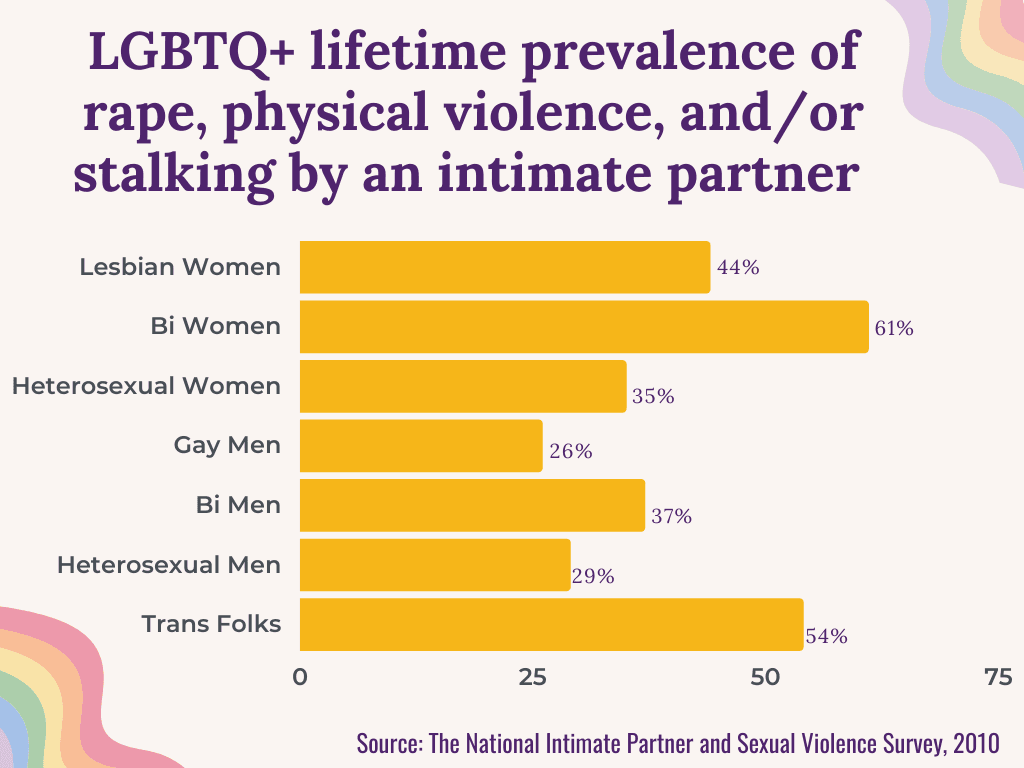
The National Intimate Partner and Sexual Violence Survey (2010) outlines the startlingly high prevalence in these relationships. Unfortunately, the experiences of transgender folks continue to be under-researched, but existing data shows incredibly high rates as well. The 2015 U.S. Transgender Survey found that 54% of transgender individuals experienced intimate partner violence in their lifetimes.
Although there has been progress towards recognizing the prevalence of violence in LGBTQ+ relationships, Pride Month can be a time to reflect on the ways our movement and services can better support LGBTQ+ survivors. Even since the 2013 reauthorization of the Violence Against Women Act included provisions for LGBTQ+ survivors, we still often use language reflecting a female victim/male perpetrator paradigm, many shelters continue to struggle with housing transgender survivors, and there are only a few population-specific service agencies dedicated to helping LGBTQ+ survivors.
In addition to increasing the stigma and barriers LGBTQ+ survivors already experience, our increasingly homophobic and transphobic current climate also hinders our ability to prevent violence before it occurs. Recognizing the link between economic injustice and domestic violence, increased discrimination (especially in the workforce) decreases financial stability and subsequently increases the risk of violence for LGBTQ+ folks. When we create opportunities to excuse discrimination in any form, we are contributing to the ongoing economic disenfranchisement of LGBTQ+ communities. LGBTQ+ workers already make less than heterosexual and cisgender workers, an inequality further compounded for those marginalized along the lines of race, immigration status, ability, or a multitude of other social identities.
Like many others, my own identity as a survivor impelled me to get involved in anti-violence work. While all abusive relationships are fraught with difficult decisions, the fact that my abuser was also a woman further muddled how I understood my own relationship. Throughout the time I spent healing from my own experience, I questioned how dominant cultural understandings of intimate partner violence obscure some of the nuances particular to queer communities. How do disenfranchised groups balance the desire to address harm with the fear of further marginalizing members of their own communities? How do we hold each other accountable when there is a lack of institutional support? And, importantly, what is the role of community in our healing?
This Pride Month, in between parades and binging Netflix’s The Ultimatum: Queer Love, my thoughts are with my community struggling in less accepting areas. As a native Floridian, my heart especially goes out to the transgender youth in my home state who are facing multiple attacks on their right to merely exist as their authentic selves. They deserve to explore and love who they are. They deserve support and safety. They deserve to be celebrated.
While we should celebrate Delaware remaining one of the states that has not introduced any anti-LGBTQ+ bills this year, we need to still advocate from afar for those who are living in places that are becoming increasingly hostile. A part of Pride Month I love is how we can hold space for multiple and equally important parts of our history. We mourn those we’ve lost, celebrate the progress we have made, and simultaneously reflect on how we can continue pushing forward.
